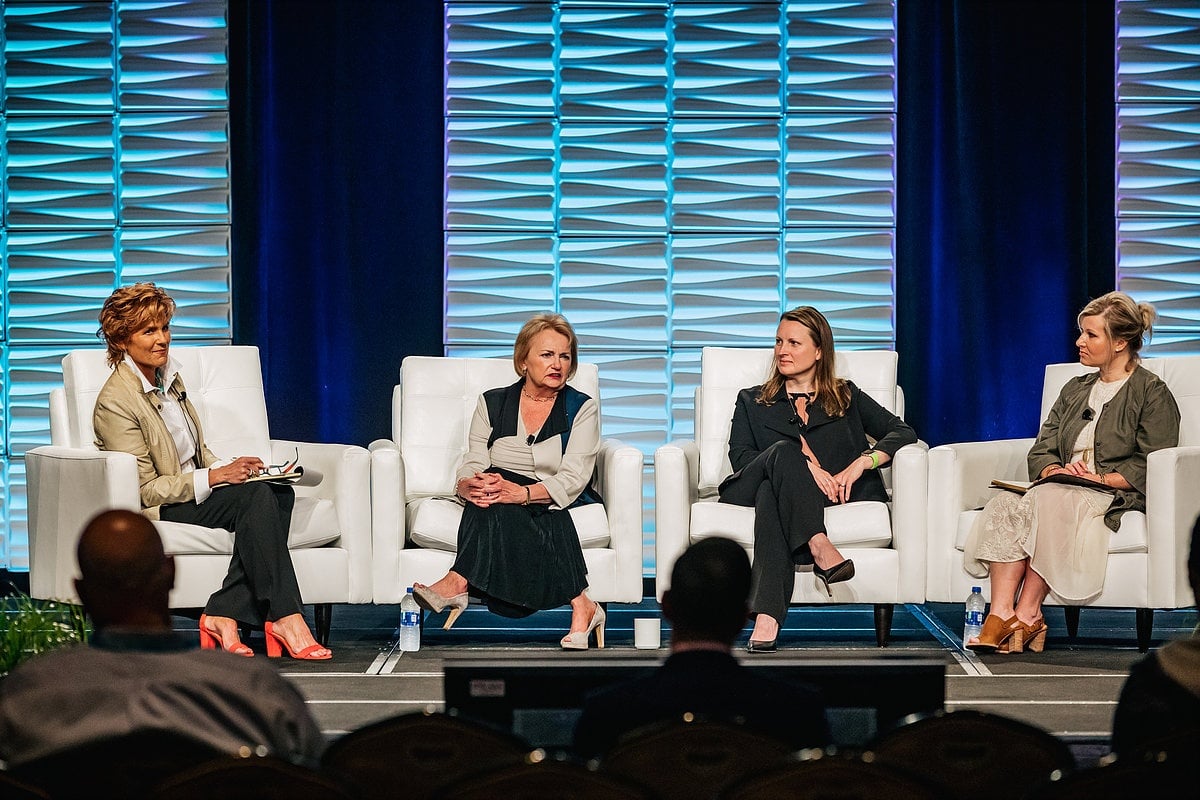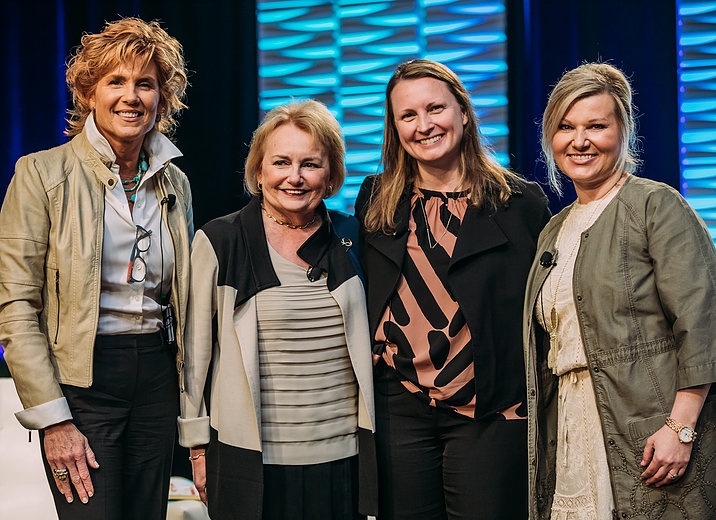
A Saturday spent wearing a bikini and keeping the keg stocked. A steady job in external auditing at Arthur Andersen. A stint “tinkering with test tubes” at Eastman Kodak. Those were the unusual first jobs of the three high-level multifamily executives on the closing panel at AIM ’18.
The members of the all-female panel described a range of academic careers and initial jobs out of school that might not seem immediately relevant to the multifamily industry. But while their early careers may not have stuck to a single theme, these executives each approached their work with similar strategies that helped them get to where they are now. Each of the women said they sought out challenges daily and nurtured relationships with mentors and personal champions.
Moderator Annie Manfredi orchestrated the panel adeptly. She came prepared with pre-set discussion topics and covered a range of industry issues including strategy, marketing, technology, and the increasing importance of data to success. For each topic, the panelists took turns speaking to the subject at hand and offered personal stories of both successes and challenges. Often, they riffed seamlessly off of their fellow panelists’ previous comments, musing about the changes in the industry over time.
Manfredi cut to the heart of the matter early: What was the unique moment or opportunity that put each woman on track to vault up the career ladder?
Sharon Hatfield, the president of CF Real Estate Services, explained that she had a supportive mentor who “allowed [her] to ask for feedback and gave it to [her] honestly.”
“She provided candid, honest feedback at a time when I really needed it,” Hatfield said.
Hatfield also put in a plug for the Center for Creative Leadership. “It’s an amazing leadership course that takes you to the next level and lets you get 360-degree feedback,” she said. “It came at just the right time. It let me see what I wanted to do with my life and career.”
For her part, Alex Jackiw, the president of Milhaus Management, noted that it’s important to distinguish between a mentor and a sponsor.
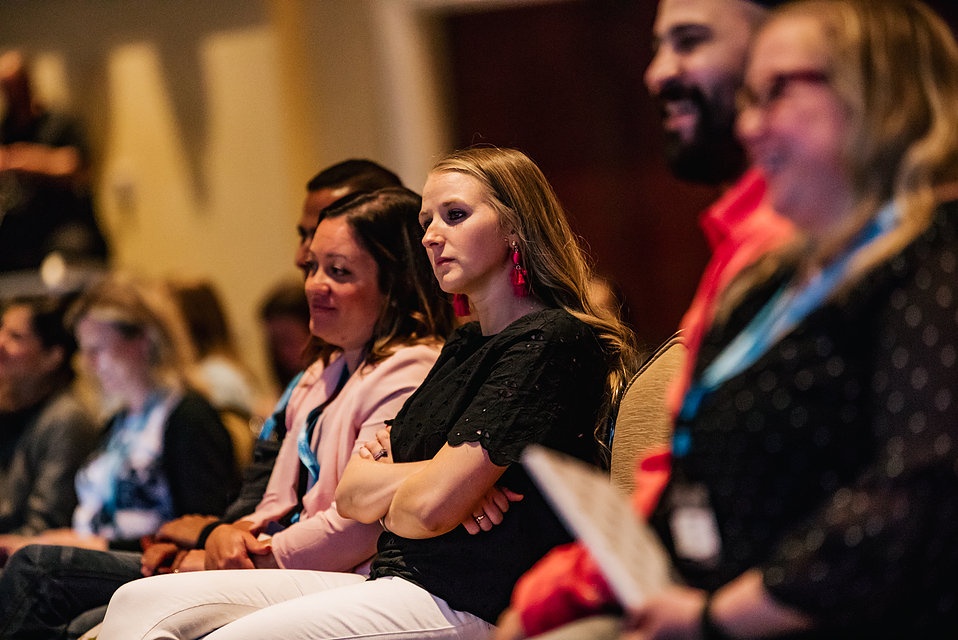
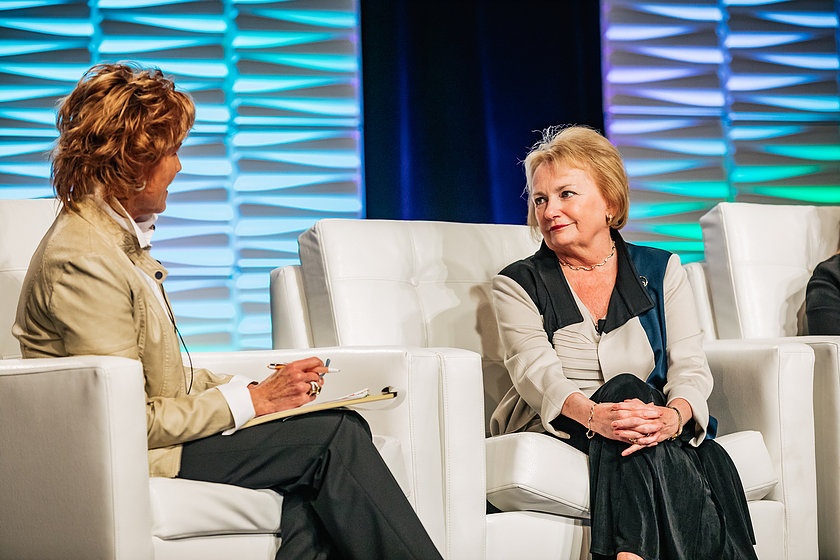
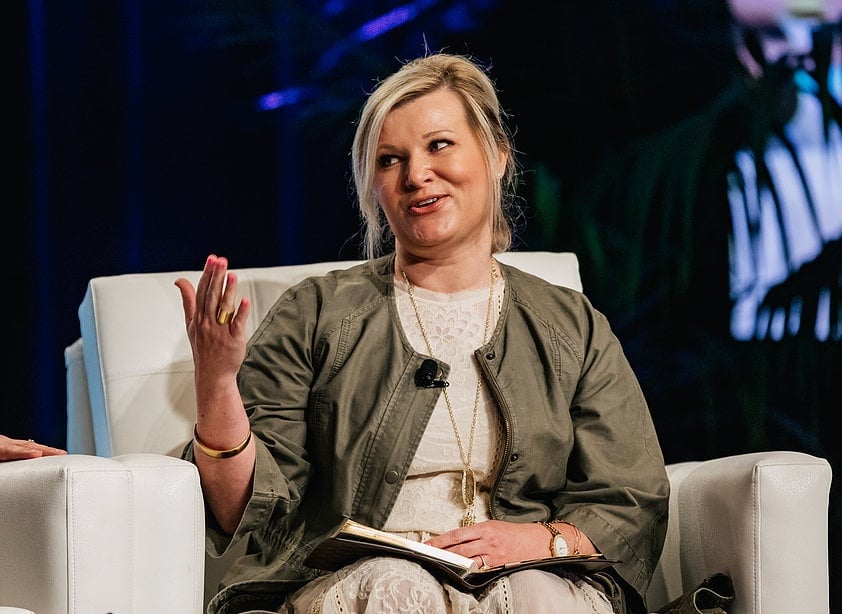
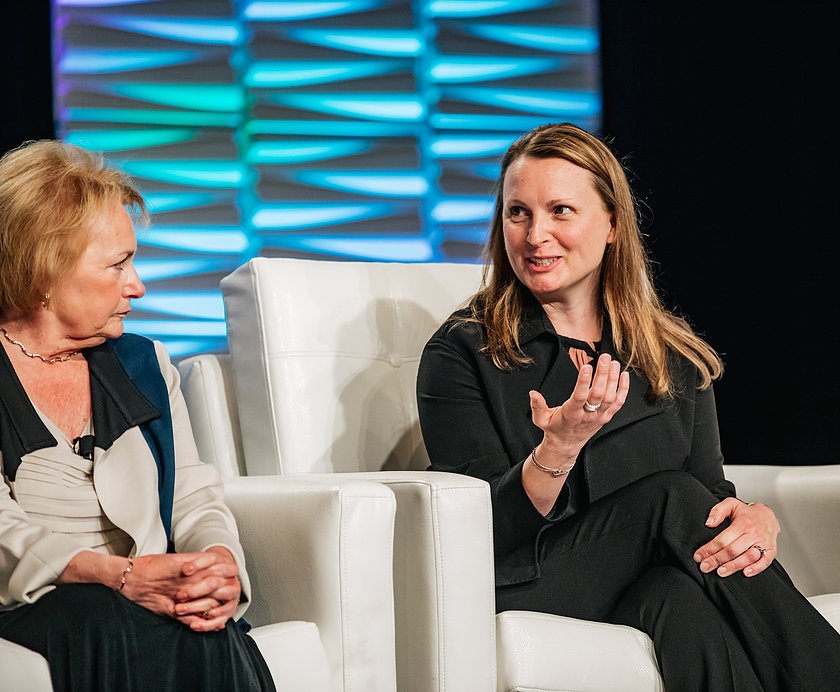
“Mentors coach you; they bring you along and tell you the brutal truth when you really don’t want to hear it,” Jackiw said. “Sponsors are people who champion you when you’re not in the room.”
Jackiw said that both are necessary in order to move forward professionally. “Your sponsor – and I will say, I had several important ones – your sponsor will be sitting at a conference table when there’s a discussion of who should be promoted next. Your sponsor will speak on your behalf. They’ll advocate for you. I was lucky enough to have a sponsor who helped me.”
Maria Banks, the president and CEO of AMLI Management Company, agreed. “If someone takes the time to give you feedback, take that to heart and act on it,” she said.
Jackiw emphasized that mentors don’t even need to be physically present to be helpful. “Social media is amazing,” she said. “I will interact with people through LinkedIn. Sometimes, someone will walk up to me and say, ‘You don’t know who I am, but I follow you on Twitter.’ You can develop electronic mentoring relationships today that weren’t possible early in our careers.”
During the panel, the participants discussed inclusion and diversity. Manfredi posed a question to the group about initiatives they participate in to help grow the diversity of both the industry and their companies. The panelists agreed that women may face an uphill battle in the world, in the industry, and even in their own companies, but it remained important to work hard, self-advocate and learn how to navigate tricky corporate politics.
“Look around at these conferences we go to,” Jackiw said. “You ask, ‘Where are the people of color? Where’s the diversity?’ I used to call this industry male, pale and stale.”
The audience laughed at her characterization, but Jackiw was quick to point out that it isn’t all bad news. It’s just an added responsibility that women like those on the panel – as well as those in the audience – have to be aware of.
“We’re still the best-kept secret in the business world,” Jackiw said.
Banks agreed, noting that “getting different backgrounds and perspectives is critically important to make sure you’re making the right strategic choices.”
Hatfield mused about the experience of women in the C-suite in general. “None of us aspired to being president or CEO,” she said. “Our goal was just to learn more, learn all we could, educate ourselves, and be really, really good at everything we did. Somehow, that naturally turns into opportunities.”
